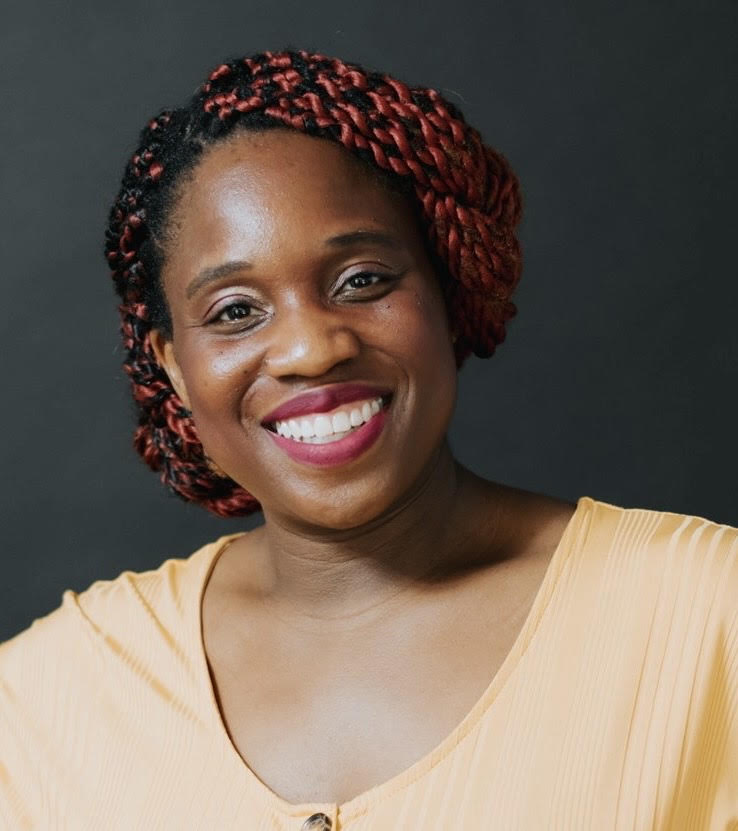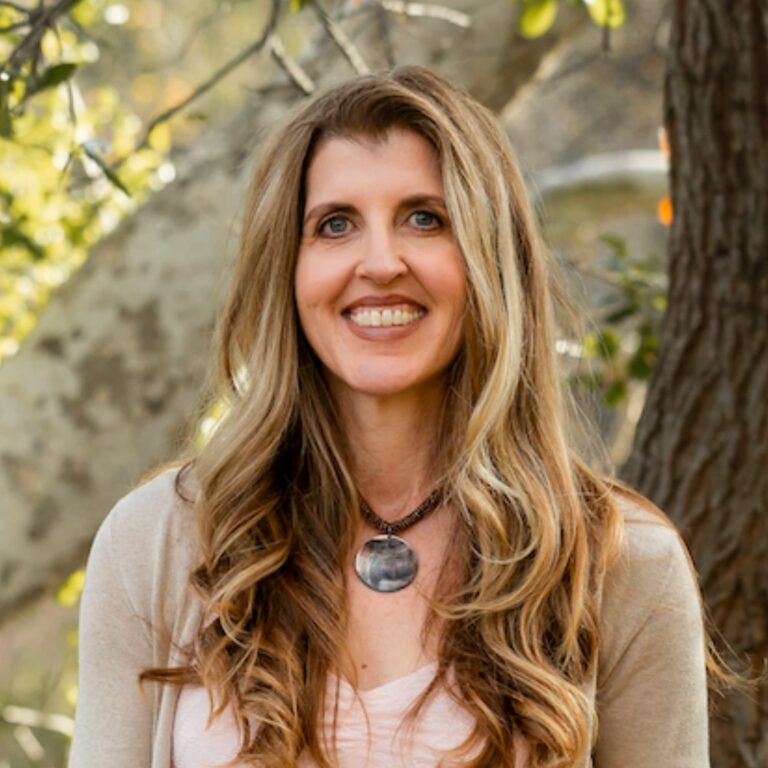The Power of Pivoting: Adjusting to New Challenges as a Widow
Embracing new challenges as a widow can be daunting, but it’s also an opportunity for growth and rediscovery. In this episode of the Widow Squad Podcast we explore the theme of pivotal widowhood moments and finding your way through the emotional complexities and practical challenges of handling change.
In widowhood, decisions take on a whole new meaning. You’re making decisions alone now and every decision, whether it’s a major life pivot or something small, has the power to shape your future, redefine who you are, and set you on a path towards finding a fresh sense of purpose.
While all that might sound intriguing in theory, what happens when you’re not sure about what to do or how to do it?
Key topics in this episode include:
- The transformative nature of embracing new beginnings
- Managing the emotional and real-world aspects of significant life choices
- How change can lead to unexpected opportunities
Whether it’s reshaping your career, selling a business, or reassessing your living situation, change is a natural part of life. Join us as we discover the art of finding peace within these transformative moments.
Listen to the Full Episode
Links + Resources From This Episode
- Jen Zwinck at Widow 180
- Are you searching for emotional support, practical advice, and guidance on navigating widowhood? Join us in the Widow Squad membership
- Follow us on Instagram and subscribe to our YouTube channel
Episode Transcript
Kim: Hello, Widow Squad podcast listeners. It’s Kim Murray here with my co-host, Melissa Pierce. It’s the beginning of a new year, so we thought it would be à propos to talk about starting over and pivoting and changes and all the things that come with new beginnings.
We wanted to start by talking about a change within our own Widow Squad family. One of our co-founders, Jen Zwinck, is embarking on a new chapter of her own by leaving the Widow Squad and returning to her Widow 180 roots by resuming her Widow 180 Podcast and exploring the options of widow coaching. While we will really miss her around here, we fully support her journey and are excited to see her path unfold.
Jen’s decision reminds us all about the importance of embracing change, and that’s what we’re diving into today. The pivots, the twists and turns, and the changes we encounter in widowhood and how we learn to grow through them.
Melissa, let’s start with you here.
When you think about pivoting in widowhood, what comes to mind for you personally? How has your own widowhood journey evolved?
Leaving Work and Paving a New Path
Melissa: Oh, gosh, so many pivots. Pivot, pivot, pivot. It’s been 13 years!
One really big pivot, which I never saw coming, was I left my job, I left my career, because I was raising my boys.
They were ten and 13 when Dave died. So I was trying to do all the things, work full time, parent, go grocery shopping, all the things we can.
Kim: We can do it all, right? We should be able to do everything, right?
Melissa: Yeah. Right. And I wanted to show everybody that I could do it, too.
Kim: Of course, you did. That’s what we do. We’re fine. We can handle it.
Melissa: Yeah, I’ve got this.
So it got to a point, like, a year later, after Dave died, I did not have it. And I just was falling apart. And I’ve talked about it in other episodes, but it was something I was kind of thinking what would it be like if I could just be a mom full time but I didn’t have the answers. None of the answers were coming, like how I could do this? But it kind of came to a head. I was trying to rationalize, well, I could do this or that. I was rationalizing a little bit because I was thinking, well, I could go back to school, and then I could go seek out another career that I could make money in and support my family.
Kim: You worked prior to having children, right? So you were used to work anyway.
Melissa: Yes, I worked my entire life.
Kim: I mean, most of us do, or I did, too. So, the idea of not working is completely foreign. I understand that apprehension or the confusion of making that decision, because how do you decide to not work? I get it. You had kids. I had kids. We needed to be there for our children and stuff, too, but it’s just hard to wrap your head around not working.
Melissa: It was part of my identity, too. I worked in the legal field, which was what I was trained in, what I went to school for. So that’s me. That’s who I am.
Kim: That’s who you think you are.
Melissa: And to think of myself as not doing that, it was like, well, then who am I? What am I? I need another profession. And at some point, I’m like, well, I’ll think I’ll go back to school. I think I can make that work financially. And I’m like, oh, I’m going to be a nurse.
Kim: Yeah, I know, right? There’s something out there, right? It makes sense. We’re going to find whatever we can find that makes sense.
Melissa: Because to me, telling everybody in my world, like, “I’m just not going to work anymore,” I’m sure they were thinking, well, you have to work. You have to make money. And so to me, I was like, well, I’m just going to tell everybody I’m going to school. And I ended up making a decision to leave my job. And that was just a in-the-heat-of-the-moment decision. I was like, that’s it. I’m done. I don’t know what the path is.
I don’t know where I’m pivoting. I’m just doing something because what I’m doing now is not working.
It was a very emotional decision, but it had been something I was thinking about. So, I ended up, quitting on a Friday, and my work told me to take the weekend to think about it. And on Monday, I’m like, yes, I thought about it. I’m out.
Kim: I applaud you for that decision-making skill. I can’t make decisions that fast. So when people do that, I’m just like, wow, I want to be like you. I want to just make decisions like that. I don’t know how to.
Melissa: Well, it was under duress. It was under a lot of stress. I think I wouldn’t have done something like that if I wasn’t under so much stress and pain and trying to figure out how I was going to really parent my kids, because I just wasn’t doing anything well. I was doing all the things, but I wasn’t doing any of them well. I gave a ton of notice. I was still there for four or five months.
But it was like the pressure was off. I know that I’m doing something different, and I know that I can spend a lot of my time just being a solo parent and trying to do it well. Whether I did it well or not, that’s up to.
Kim: I think you did it way better than you think you did. Most of us do way better than we think we do.
Melissa: Yeah. So that was a huge pivot. And it was scary because I did end up going to school. I did end up taking classes to do my pre requisites for nursing. It was great because I was on the same schedule as my kids, so I would drop them off at school and then I would go to my school. I would be back when they came home. We had the same spring break and the same summer break and the same vacation. So it was great.
I did that for about two years or so and then realized I don’t have what it takes to be a nurse.
Kim: I think you’d make an amazing nurse but I understand if you didn’t choose that path.
Melissa: Do you know what got me? It was the math. I just could not do the math. My brain did not work that way. Okay, side note, so I had to take bonehead math again.
Kim: You’re preaching to the choir here. I get it.
Melissa: I had to take low, like, third grade math, basically. It didn’t even count as a credit. It was so low. And so I’m doing math along with my kids at the table, and they’re doing math that is so beyond me. And I’m asking them, “hey, do you know how to do this?” And they totally took the opportunity to be like, “oh, my God, I can’t believe you don’t know how to do that. I can’t believe it.” I’m cracking up.
Kim: That’s hilarious, because I don’t even know how people get past algebra one. I had to retake that several times. And when I went to college, I placed out of English. But I was back down to regular math of the high school level because I couldn’t pass out of it. So, I understand that.
Melissa: Oh, you’re doing way better than me. I was in the third-grade level, but I know the basics. I’m sure there’s mathematicians out there listening, but it just wasn’t that important in my career, and I could support my family without doing math.
So at that point, I was like, okay, I’m just going to be full-time mom for a little bit. And that worked. And then when my kids were older, I went back to the same company that I left, like, three years later.
Kim: So you had that time to figure stuff out.
Melissa: Yeah, it was a big pivot. There were lots of little pivots here and there, but that was a big one. And I also knew that I could pivot as I was pivoting. You could change the path as you’re going along. I would just always check in with myself.
Kim: Well, that’s a good point, because we’ve talked about this before, too, and I just don’t think we give ourselves that grace to make different decisions or to pivot or to change. I know I didn’t do that for myself. I like that you were checking in with yourself or just deciding that it’s okay to be in this place right now. It doesn’t mean you’re going to be there forever. It doesn’t mean you’re not going to be employed forever. It doesn’t mean you’re going to be at the same job forever.
Those are kind of the big things that we have to talk about and to decide what to do, because there’s lots of pivoting and lots of changes in widowhood. I was really hard on myself by not allowing myself to make those changes, not allowing myself to make those pivots. So I’m glad that you were able to do that and kind of come to a place where you were okay with deciding something different.
Melissa: That’s not easy. During that time, there were all kinds of doubt going on, but I just stay true to how I’m feeling in the moment.
Constant Pivots and Changes in Widowhood
Kim: We have a lot of changes to make, so you have to consider things you don’t know. Things you don’t know you have to consider before you’re a widow. Once you become widowed, the constant pivoting and constant changes in direction cover a vast number of topics, like emotional adjustment. You’re constantly pivoting just with your emotions because they’re a roller coaster, right? Up and down and up and down.
Melissa: Oh, my God. Yes.
Kim: So you’re feeling one way one day and then something different the next. It could be a complete change. It could be a sort of different avenue. But the range of emotions you feel are things you never even knew existed.
Melissa: Emotions you never tapped into. Ever.
Kim: Never tapped into. And you’re going down into the depths that you’ve never experienced before. So you’re constantly managing those ebbs and flows. Those are pivots. Those are changes that you probably aren’t even realizing that you’re doing. But that’s just part of widowhood.
And you mentioned before about reestablishing your identity. You think well, this is what I did for a living. What am I now if I don’t do that? You were a wife. What am I now if I’m not a wife? All these identity traps that we fall into because now we’re widows, and we have to ask that question of ourselves all the time. Who am I now? And again, putting a tremendous amount of pressure on ourselves. We’re not our jobs, we are not our professions, we’re not just widows.
Widowhood is a label. That doesn’t mean you’re that thing. Your spouse died, and now you’re a widow or a widower. But it’s a label. So, we kind of get wrapped up in these labels that we give ourselves of our profession, or our marital status. And there’s a lot of changes that come with redefining who we are and what role we play in our new life.
So that’s another pivot. That’s a lot of pivots, a lot of changes. There are also financial changes.
Melissa: Huge. Yes, huge.
Kim: I mean, the financial implications of losing a spouse can be very significant. And you may need to review your financial situation. You may need to review your income or your investments or your expenses. That’s constant. You’re constantly changing and pivoting. I mean, I know I was constantly changing and pivoting with financial decisions. I have a calculator on my desk, and I would just sit for days punching numbers on the calculator just to make sure that it’s going to be okay if I did this or if I spent this.
This is probably a 30-year-old calculator, but I just spent days punching numbers. Constantly punching numbers.
Melissa: Did it make you feel better? Like, more in control or what?
Kim: It did make me feel better. I think it was definitely a control thing because I would just have to understand where either the expense or whatever was coming from or the investment or health insurance. That was a big deal for me because I was self-employed, so I had to buy my own health insurance. I was always like, am I going to be okay? I always was okay. But I had to see that number. I had to see that number on the calculator to signify to me that I was going to be okay.
Melissa: They’re kind of like forced pivots because the financial piece is pretty much forced. I would imagine most of the people listening here who are widowed, they’ve lost half their income, but you still have to pay the whole rent and the whole mortgage. So some of that is really forced. You have to pivot.
Kim: Well, when you’re talking about pivoting and changing, some of the widows listening may be thinking, well, I don’t know how to do that, or, I can’t do it. The point is, you’re already doing it. You’re already doing it by asking yourself questions about your emotions or your identity or your financial transactions. You’re actually doing it even if you think you’re not. So, again, kudos for keeping on because you’re already doing the things you didn’t realize you were doing.
Maybe you’ve had to move. Widows have had to change their living arrangements or their housing because maybe they wanted to or had to downsize or relocate. That’s a big change.
Adjusting to New Challenges as a Widow
Melissa: So what ways have you navigated the personal changes since Mark died?
Kim: I took over running Mark’s business. The big, big change, the immediate change, and this was even before he died, was taking over his business. He was self employed. I had to keep the money coming in and the bills had to be paid. It was easier, believe it or not, to take over running his business than to decide or try to figure out what I was going to do instead. In my mind I thought, well, I’m just going to run this business while he’s alive. He had a year. They gave him a year to live after his diagnosis. I’m thinking, I’ll just do this for that year while he’s alive, and then I can decide whatever I want to do after he’s gone.
But when he died, I thought, well, what am I going to do now? Same question, who am I now? I was a technical writer. I was a computer trainer before I quit working to have children. So even before he got sick, I wasn’t working because I was a stay-at-home mom. But before that, I was a computer trainer and technical writer. I wrote manuals, employee training manuals on computer programs and all kinds of things. Technical writing, I can go back and do that.
Well, that involves contacting people and interviewing and updating my resume and updating my writing samples. I’m like, I don’t know if I have it in me to update all of this and to go through all this. At the time, I’m still running Mark’s business. So I just kept going with that. But I didn’t allow myself to make any decisions to get rid of that business until eight years later. So as I’m going through making these pivots and changes in all the other areas, the emotional, the financial, the identity, all of those things, I just continued working.
Finally, after eight years, I decided it was okay to sell the business. That was a huge decision too.
Melissa: Because that was probably a lifeline that you had to Mark, right?
Kim: 100% a lifeline. In my mind, he was still alive while I was running his business. It was kind of like he was still around. So I say I decided eight years later to sell it. But that decision to sell didn’t just happen. That was, like, probably a two-year decision in the making, because I don’t make decisions easily or fast.
It took me a year to decide to buy a new car, OK? When I bought a new car, I literally spent a year doing the research, asking the questions, looking at the reviews. I mean, this is how my mind works, so it takes me a very long time.
Once I decided to sell the business, that’s when all the opportunities opened up for me to actually make that a reality. Once I made the decision, then I started talking to people who were interested in buying it. Then I started taking it to the next step about what would that look like if someone purchased it? So sometimes making the decision opens up the other possibilities.
When you’re stuck like I was for so long, you’re not even allowing those opportunities to present themselves to you. I viewed pivoting and changing as a bad thing. I viewed it as a negative. It’s actually a positive. It’s actually a really good thing to do, because if you’re in a position where you are stuck, then there’s nowhere to go but up, right?
I mean, you have to make the decision to change in order to have those opportunities open up.
Even now, people say, what do you do for a living? I’m like, well, I run a membership for widows. We have an online membership. People look at you like, what?
Melissa: Yeah, because they don’t know what to do with widows. They’re like, “oh, how does that work? How do you do that?” Because most of the people we’re talking to are in traditional jobs, going to work or whatever, going to an actual place.
Kim: Well, that’s what I used to have to say to people when I had the business, and they would say, “what do you do for a living?” I would say, “I sell chemicals to the metal processing industry.” Well, that would shut them up. Because they have no idea what that means. And then it would be like, “oh, that’s interesting.” And then they move on.
So now it’s kind of a similar situation where people are like, what do you do? I support widows. I have a membership for widows, or I run an online membership. And they say, “oh, that’s interesting.” And then, boom, unless they know a widow or they know somebody who we could help, it just kind of shuts them down.
But that’s a big change. What am I going to do if I sell this business? Who am I? I’m not working, like you said, in a typical profession. So, it was hard for me to justify that or rationalize it because, technically, I wasn’t working anymore. I sold a business.
Melissa: Yeah.
Kim: Well, that was in 2021. At the end of last year, that was two years since I sold it. And I have to say, everything’s fine. Everything worked out great. The sky did not fall. I wasn’t struck by lightning. I didn’t become destitute. I’m not out on the streets.
Everything worked beautifully.
Melissa: And, you know, Kim, you had to do it in your own timing. Maybe a year after he died, you weren’t ready. Five years, whatever. But you had those, what did you say, two years before? Or three?
Kim: At least two years before.
And again, raising children as a solo parent is no joke, right? This was a very flexible job for me. I was able to be home with my kids when I needed to be. I was able to be at their school functions and their sporting events. I had a schedule that I could make whatever I wanted it to be. So when I thought about changing that, I was like, I can’t change that. I’m going to stick with this job selling chemicals to the metal processing industry because it’s convenient and flexible for me.
It wasn’t until my kids were older that I was able to actually make that decision to sell it, because then I was changing again. My children were getting older. They’re getting ready to graduate from school. That’s a change. So when those changes started and my kids started getting older and my son moved out at 17, I could make those decisions a little bit easier.
Melissa: Right. I may not need the flexibility of this right now.
Kim: So it made it a little bit easier. But until then, until the kids were older, and I could wrap my head around that, I couldn’t even begin to decide. So, yeah, it was probably two years before I sold it that I started ruminating and kind of like, how would this work and what would this look like, and what do I do? It took a couple of years to get to that point, but, yeah, everything worked out fine. I think me worrying about what the outcome could potentially be or what the problems could potentially be are far worse than what actually happens in reality. I make things a lot harder on myself.
Melissa: Right. We tend to catastrophize.
Kim: I am the queen of catastrophizing. I do that really well.
And then I got remarried. So making the decision to get remarried is a big one. And I didn’t want to stay in the house that Mark and I lived in because I was getting remarried. So then I had to make the decision to move. Those are big pivots.
But we all go through them, anyway. If you think back to when you were pivoting or changing before you were a widow, you had lots of pivots in your life. You had lots of changes in your life. And I think sometimes we get stuck in the widowhood part of it. I can’t do this now. Well, you can because you’ve done it before. You’ve done it many times before.
Now you’re just doing it in a different way.
Finding Strength in Change
Kim: We’ve had stories from our widow squad, community members of big things that they’ve done. I mean, what are some of the things that come to mind for you of some things, our community members have changed?
Melissa: So we’ve been a membership for over a year now, and so we have folks in there who have been with us for that long. I don’t know about you, but I can really see the change from when they first were first in the membership to where they are now. We’ve had several people make big moves, moving their residents, moving to other parts of the country, and they’re scared, and they’re talking to us about how it’s scary. It’s not an easy thing to do, but they’re sharing that with us, and they did it. They’re making their home somewhere else. And it was a decision. A big pivot.
They just took the little steps to do that. We’ve had a couple of folks take really huge trips by themselves. Like, foreign journeys, foreign lands, big journeys, plane rides across continents and time zones.
It’s been really cool to see the trajectory of where they came when they were with us from the beginning to now, and, like, some really big things that they’re doing. I know a few people have talked about maybe wanting to date again or see what that’s like or dip their toe in the dating pool. So that’s another pivot, too.
But it’s been really cool to see these ladies make decisions to change or pivot. And also, as they’re going down this direction, they’ll veer off and say, “you know, I don’t know if I want this. I’m going to take this other path.”
I can tell that it boosts their self-esteem and their confidence by just making a decision, taking a little baby step, taking a big step, whatever they need to do. That’s been pretty amazing.
Kim: And also having the Widow Squad community to support them. When we’re in our meetings and we’re talking and we can see the difference in their demeanor, their voice, the inflection in their voice when they’re talking about things, because it goes from being terrified or I’m never going to do that to, well, what if I did do it, and look at the changes and look here where I am.
We definitely see that transition, and it’s also easier for us to be able to say to them, “listen, you can make a decision and change your mind. It’s okay to do that.” I’m talking from my personal experience of how hard that is for me, but when you’re with other people that say, “no, it’s going to be okay, you can do this, you will be successful, and everything will turn out the way that you want it to” it makes it so much easier. It’s easier to say that to other people than to believe it about ourselves. But when we’re in community and we get to talk about it and come back month after month and just say, “well, this happened and I made this decision, then this happened, and then this happened, and it was all good. It was all okay.”
Then the new members are like, oh, well, if she did it, I can do it. But you don’t know that when you’re first widowed and you don’t know it when you’re going through that first year, but when you’re with a group like we have, and you’re like, oh, she’s ahead of me, so I can get where she is. It makes a world of difference.
Melissa: Oh, yeah. It’s really nice to see somebody a couple of steps ahead of you because you know that could potentially be you. Absolutely. There’s hope there.
Before we close up the conversation, maybe we could share some strategies or advice for widows who are thinking about a significant change in their lives.
Kim: Yeah, I think we’ve kind of touched on some of those things, of realizing that, first of all, decisions aren’t permanent. This is my big fear. I make a decision, and that’s it. That’s the way it’s going to be from now until the end of time, which is not the case. I’ve had to really train my brain to believe or to understand that decisions aren’t permanent. You have information you make a decision with at that time, and when you get new information, you make a new decision. I spent a lot of time in indecision because I just didn’t know what was coming up ahead of me.
But nobody knows. So you have to make the decision first. One small step. One small decision leads to the next one. To the next one. To the next one. You can’t jump ahead to decision ten without making decision one first. This is where I contributed significantly to my own suffering over the years, by just believing that I had to have it all figured out, and you don’t. You just need to make those baby steps first.
So decisions aren’t permanent. You get to change your mind when you’re presented with new information. If you were to move and it was the worst move that you ever made, then you make a new decision, you move again. It’s not the end of the world.
Also taking care of your physical health. Tthis is something that I think is underrated and that most of us really don’t give enough significance to, really, your physical health can help you manage your emotional challenges.
Melissa: Oh, amen. Yes.
Kim: People always say, get enough sleep. Sometimes that’s not possible. Sometimes sleep issues are a thing. Okay, so I get it. You’re going to read all these things from people who say, “get enough sleep.” Granted, that would be fantastic if that worked out for you. If it doesn’t, that’s okay. But eat well, exercise, get your lab work done, like just getting blood work done, going to get a physical. Those things are all going to help you manage your life and your emotions.
These changes and these pivots and these things that are big decisions for you can be made exponentially easier if you are physically well and emotionally well. So emotionally well means give yourself the time to grieve or allow yourself to grieve and be okay with being sad about making some of these changes. If you’re moving from your home, that’s emotional, that’s sad. It doesn’t mean your move isn’t a good one. It just means you’ve got this sadness over here from leaving something behind. And that’s okay. So, allow yourself to have these roller coaster emotions. The ups and downs and the mourning, the loss of not only your person, but your home, or your identity, or your job, or whatever it is that you are leaving behind or moving on from.
Those are grief moments that you just have to allow yourself to have. If you can remind yourself that it’s okay to grieve, it’s okay to have your roller coaster emotions, it’s okay to make decisions and change your mind and make another one, and just keep yourself, your physical health, in good condition. I think those are big deals.
Melissa: That’s pretty much all of them. Like, you took the words out of my mouth. You don’t have to go directly from A to Z. It’s always those baby steps. Because you can’t get from LA to New York just driving in one hour. It takes some time. So taking those small steps, pivoting when you need to check in with yourself and you can make adjustments anytime.
Pretty much nothing is permanent. You can make different decisions. You can go down a different path. And then taking care of yourself. You can’t deal with the stress and all the emotions if you are run down, not fueling yourself properly, not taking care of your body physically and emotionally and spiritually. Self-care goes hand in hand with these big things that are going on in your life.
Wrap Up
Melissa: As we close out today’s conversation, let’s hold on to the idea that every change brings with it a chance for growth, new understandings, and even unexpected joy.
Embracing change isn’t always easy, but it’s a huge part of our healing and rediscovery. And to everyone listening, remember, in the ebb and flow of change, you’re not alone. We’re here for you sharing in each step of this journey.
We’re also sending out our best wishes to Jen and looking forward to continuing this journey with all of you.
Thanks for sharing this time with us. If you’re navigating your own changes or have a story to share, we’d love to hear from you. Your stories are the heartbeat of our community, so please reach out on our website or through our social media. That’s widowsquad.com.
And if our conversation today resonated with you, consider subscribing to the Widow Squad podcast and leaving a review. Your feedback really helps us grow and support more widows like you.
Until next time, stay warm, keep hopeful, and embrace life’s changes with kindness and courage.







